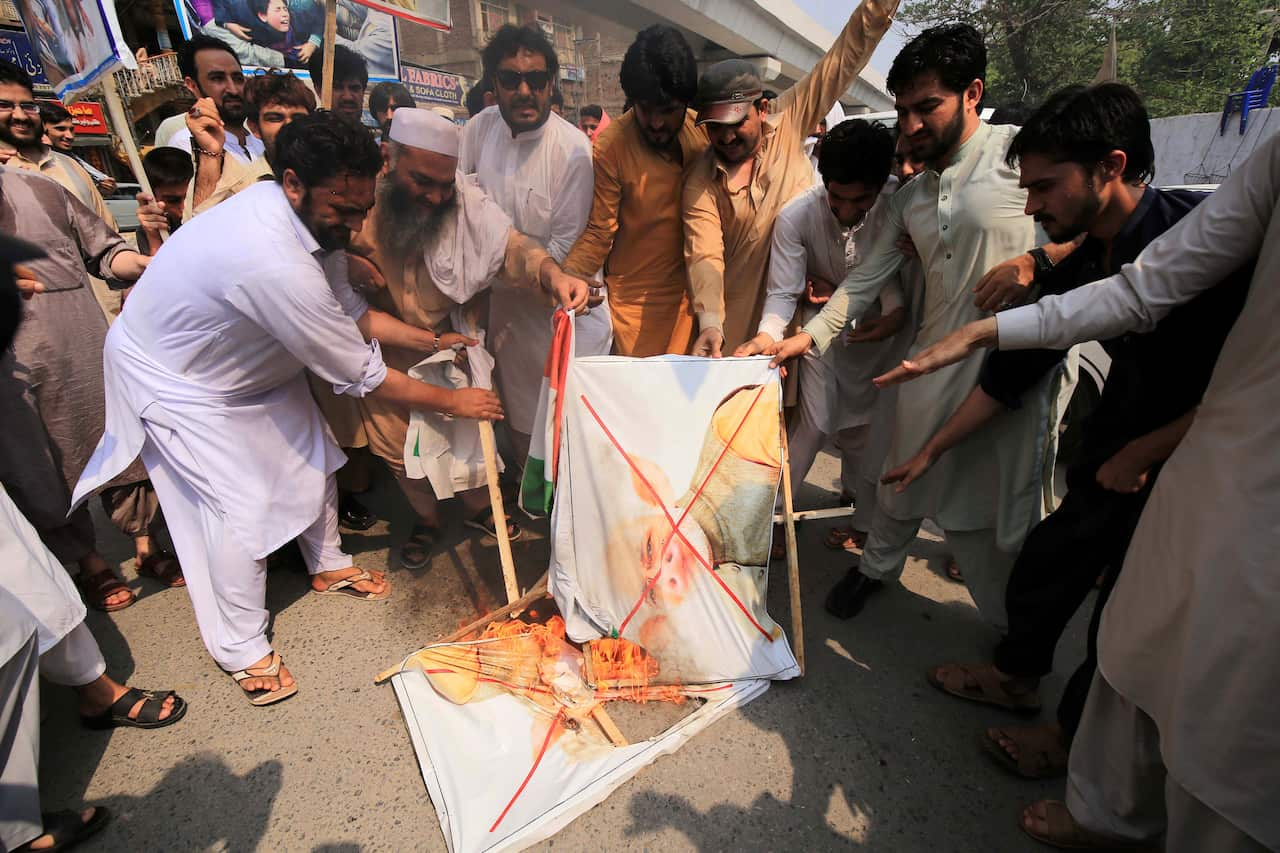Fear has gripped Indian Kashmir as residents continue to speak out over a tense military crackdown following the government's move to scrap the region's special autonomous status.
Parts of Kashmir have been placed in lockdown, and some local politicians placed under house arrest.
Telephone networks and the internet were cut off on Sunday evening and thousands of troops are patrolling the streets.
The former chief minister of Jammu and Kashmir, Mehbooba Mufti, is among several politicians in Kashmir who have been put under house arrest by Delhi.

Former chief minister of Jammu and Kashmir, Mehbooba Mufti has been put under house arrest. Source: NDTV
Her daughter, Iltija Javid, now no longer knows where her mother is after she was apparently moved and detained further.
"I'm obviously wracked with worry because they're not allowing me to communicate with her, and I'm not allowed to visit her either," Ms Javid told the BBC on Tuesday.
"She doesn't have access to a lawyer, she has absolutely no contact with the outside world and I believe the Indian establishment is scared that their misadventure is obviously going to cause a huge backlash here, and they feel like they're not equipped to face that."
Ms Javid added the Indian government's actions would only antagonise Kashmiri people.
"I feel like we've been betrayed, our trust has been broken," she said.
"I always believed in the idea of India where diversity is celebrated, where people from all religions can co-exist and live together in a peaceful manner.
It feels like we've been stabbed in our back and I want the rest of the country to know that they are being fed wrong information, they are being conditioned in a way that they end up hating and demonising Kashmiris, and that's going to increase the sense of alienation that they feel."
The Delhi government said the bill which downgrades the autonomy of the Indian-administered state is a logical progression completing the integration of Kashmir with the rest of India.
The legislation was promoted by Prime Minister Narendra Modi's ruling BJP party and passed through the Parliament's Upper House with support from political rivals from India's southern states.
The government has an absolute majority in the Lower House.
Supreme Court advocate Monika Arora said Kashmir has always been a part of India and that the decision to integrate will boost the chances of investment in the region.
"Benefits under the Constitution of India, available to all the states of India and its people, will be applicable to Jammu and Kashmir also," she said.
"I see many, many people going and investing in the state. I see lots of employment being generated in the state. I see tourism getting a boost. I see peace coming."

Demonstrators burn a poster of the Indian PM as they protest in solidarity with the people of Kashmir. Source: AAP
But Opposition MP Shashi Tharoor said the government's move could open the way for terrorist attacks.
"By locking up the democratic parties and their leaders you are opening up a space for undemocratic forces," she said.
"We are facing a situation in which they can cite a new injustice for them to fight. You have made the mainstream pro-India parties irrelevant and powerless to stop extremism."
But for now, Kashmir remains in lockdown.
And Iltija Javid fears that by talking to international media, she may find herself joining her mother in detention.
"I'm pretty sure whatever few interviews I've given to media outlets, they're going to rile up the Indian government and I am expecting a very hostile reaction from them, and I'm not sure if I'm safe anymore," she said.
I might be kept under arrest and they might take me as well"
Two of the three wars India and Pakistan have fought since their independence from British rule were over Kashmir.
- with additional reporting from AFP

